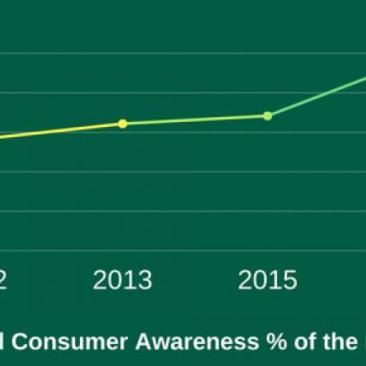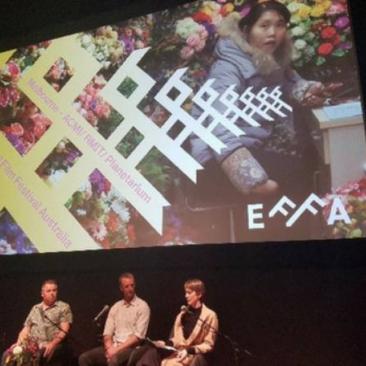This year our mission was to make FSC valued and respected by stakeholders.
To achieve this we made significant progress on our stakeholder engagement guidelines, supported policy development increased our advocacy activity and conducted CSR and consumer research to support market demand.
Submission of Draft National Standard to FSC International
This year FSC made further progress to finalising the development of the first National Standard. The Standard progressed between Drafts 5 and 6.
Further consultation was required of the Standards Development Group (SDG) to reach agreement on a number of areas following submission of Draft 5. These included areas relating to workers’ rights, riparian definitions and representative sample areas (Annex D). These areas were significantly reduced for submission of Draft 6 to FSC International.
Draft 6 is likely to be considered at the International Policy and Standards Unit (PSU) decision meeting at the end of January 2018. FSC Australia would like to thank the SDG for all their work and continued participation in the development of the National Standard. All members have demonstrated an outstanding level of commitment to ensuring that the National Standard provides a robust framework for responsible forest management within Australia.
FSC Centralised National Risk Assessment for Controlled Wood standard (CNRA)
To ensure that risk assessments can be applied locally, taking into consideration countries’ specific social and geographical settings, working groups appointed at the national level are in the process of developing national risk assessments (NRAs). These are created following common normative procedures and are mandatory for companies seeking certification under FSC-STD-40-005 (Requirements for Sourcing FSC Controlled Wood), replacing assessments developed by companies. This year, FSC Australia has been working to develop a centralised national risk assessment for the controlled wood standard.
The CNRA is conducted by outsourcing the assessments according to one of the 5 controlled wood categories to external experts having a strong background and experience in areas relevant to the controlled wood categories. For Australia, a CNRA will be developed for the following categories:
- Category 3: Wood from forests in which HCV are threatened by management activities and;
- Category 4: Wood from forests in which genetically modified trees are planted.
FSC Australia is working with FSC International and the local experts to ensure the progress of the final report is delivered on time.
FSCA is strongly committed to enhancing its relationship with Indigenous Australians, particularly relating to economic, social and environmental conservation opportunities. Protecting the rights of, as well as creating opportunities for, indigenous communities is a key principle in FSCA’s approach to responsible forest management. Meaningful engagement with Indigenous Australians forms an integral part of the FSCA process. This year saw the launch of a Reconciliation Action Plan (RAP) which FSC Australia presented at our 11th AGM on the 25th May 2017. The commitment to embrace and integrate Aboriginal cultural values is reflected throughout the RAP. FSCA members welcomed the commitment that FSCA was making. As a small organisation, it has taken almost 2 years in the making to create the Innovation RAP which is a unique model that Reconciliation Australia now models other small businesses on. FSCA joins over 100 other Australian organisations with RAPs in place.
Central to FSCA’s Indigenous engagement is our Indigenous Working Group (IWG). The IWG have played an important role in the development of the National Standard as well as providing advice and guidance on the implementation of the RAP; the development and application of the Stakeholder Engagement Guidelines; and seeking opportunities for Indigenous Forest Enterprises seeking certification. The IWG held a meeting in May 2017 where members discussed the future opportunities for the IWG.
FSCA also actively participated in the 2017 NAIDOC week activities. NAIDOC celebrations are held around Australia every July to celebrate the history, culture and achievements of Aboriginal and Torres Strait Islander peoples. The week is celebrated not just in the Indigenous communities but also in increasing numbers of government agencies, schools, local councils and workplaces. This year’s theme was Our Languages Matter, which aimed to emphasise and celebrate the unique and essential role that Indigenous languages play in cultural identity. FSCA took the opportunity to attend two NAIDOC week events including:
- The Footscray Flag Raising event involving a welcome to country, traditional smoking ceremony and flag raising.
- The Keelbundoora Scarred Tree and Heritage Trail including a guided tour of the Keelbundoora scarred tree and heritage trail led by Wurundjeri elder Ian Hunter.
FSCA recognises that as the nation’s original stewards of the land, Aboriginal and Torres Strait Islander peoples have historically maintained the health of Australia’s forests, and continue to perform this role through their unique knowledge of and continuing connection to lands, waters and communities. FSCA looks forward to developing stronger relationships with indigenous groups in 2018.

Throughout 2017, the FSC Australia office participated in two different third-party research studies. Including Pollinate consumer research and Australian Centre for Corporate Social Responsibility (ACCSR) procurement research.
Pollinate is a market research agency that FSC Australia engaged with to understand how familiar Australians are with the FSC logo. The results were encouraging with one in four Australians were familiar with the logo. Whilst, these numbers were fairly stable across all demographics there was far greater familiarity with the label with millennials.
The procurement research conducted by ACCSR highlighted some very interesting trends in procurement policies amongst Australian businesses.
- Paper products (print and copy paper) were the most purchased FSC certified products amongst Australian businesses that participated in the survey.
- thirty-seven percent of respondents believe their organizations purchase FSC certified copy and printing paper.
- Followed by stationery and hygiene/sanitation products.
These numbers are quite stable across all size of business, whilst the consumer retail industry was the biggest purchaser of FSC certified products. Followed by the construction and real estate which was followed by the manufacturing sector.
2017 saw the addition of 19 new certificate holders, ranging across every facet of forest products.There were two Forest Management certificates, which total roughly 16,549 ha added to the total of certified forests in Australia. The other 17 Chain of Custody certificates spanned industries including packaging, manufacturing, lumber, construction, building, toys, printing and stationery.
Our Trademark Services Program also gained some excellent retail supporters that are helping to spread the word of FSC. New retail supporters include The Outdoor Furniture Specialists, Promocean, Wellington Zoo and Evergreen Flooring. We look forward to more supporters in 2018!

This year FSC Australia has undertaken a variety of different advocacy activities to enhance some of these fundamental values including attended a number of events:
- The Institute of Foresters of Australia 2017 Conference on Tropical Forestry: Innovation and Change in the Asia Pacific Region;
- The Environmental Film Festival Australia; and
- The Forest Practices Authority Conference: Looking back, looking forward – 30 years of Tasmania’s forest practices system.
FSC Australia also engaged actively with the Federal Government on a number of forestry-related issues. As a result, over the past year, we have seen the implementation of a Modern Slavery Act as well as reforms to Australia’s illegal logging legislation. These changes are representative of the positive outcomes achieved through effective advocacy.
Another major initiative launched this year was the Vancouver Declaration. The Vancouver Declaration was announced at the FSC 2017 General Assembly in October. The Vancouver Declaration is a commitment that allows businesses using materials from responsibly managed forests to publically pledge their support. The aim is to get companies across the globe to work towards more sustainable sourcing of forest products. It also acts as an endorsement of FSC as the supplier of choice for certification of forest products. Already, a number of Australian companies have signed up to this initiative including Officeworks, BioPak and Abodo.
